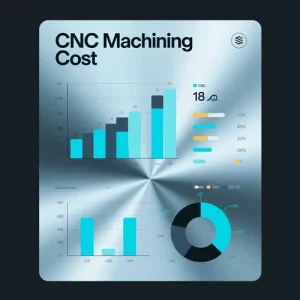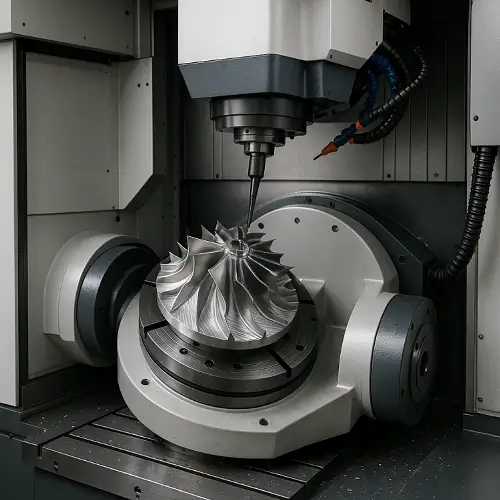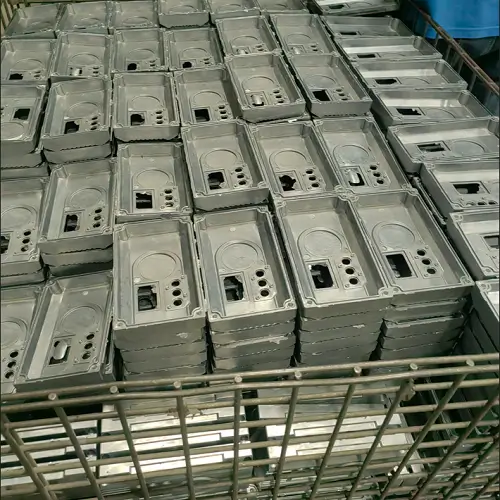If you’re designing a part and wondering how much it would cost to produce via CNC machining, you’re not alone. Price is often the most critical factor—especially for prototypes, small-batch runs, or cost-sensitive applications.
This guide explains what really affects CNC machining cost, what you can do to reduce it, and how to get fast, reliable quotes from professionals.

What Determines CNC Machining Cost?
Understanding where the money goes helps you design smarter and quote faster. Here’s what contributes to the total CNC machining cost:
| Cost Factor | Description |
|---|---|
| Material | Raw cost varies (aluminum is cheap, titanium is costly), plus machinability |
| Machine Time | 3-axis jobs are cheaper; complex 5-axis takes longer |
| Setup and Programming | Includes CAM time, fixture setup, tool paths |
| Tolerances | Tight specs (±0.01 mm) increase cycle time and QC effort |
| Geometry | Deep pockets, small radii, and thin walls are harder to machine |
| Surface Finishing | Anodizing, sandblasting, coating, and polishing add time and complexity |
| Quantity | Higher quantities spread fixed costs across more parts |
🔗 Learn about our surface treatment options to see how finishing affects pricing.
How Your Design Impacts the Quote
Design choices can drastically change CNC machining cost—sometimes more than the material you choose.
Common design elements that increase price:
-
Unnecessarily tight tolerances on non-critical features
-
Sharp internal corners, requiring EDM or custom tooling
-
Deep cavities that slow down tool feed
-
Thin walls that require lower cutting forces and special care
🛠 Jeek Rapid offers complimentary DFM feedback. Before manufacturing, we can recommend design tweaks that save time and money without compromising function.
Material Selection and Its Cost Impact
Choosing the right material doesn’t just affect your part’s performance—it also plays a big role in your overall CNC machining cost.
| Material | Machinability | Cost Level | Comments |
|---|---|---|---|
| Aluminum 6061 | High | Low | Great for prototyping and production |
| Stainless Steel | Medium | Medium–High | Needs slower feeds, harder to cut |
| Titanium | Low | High | Tool wear, low speeds, heat buildup |
| ABS/Delrin/PC | High | Low–Medium | Excellent for rapid plastic parts |
Tip: If you’re prototyping, consider switching from steel to aluminum or ABS to reduce machining costs.
Realistic CNC Pricing Ranges
Every quote is custom, but here’s a general idea based on our in-house jobs:
| Job Type | Estimated Cost (USD/Part) |
|---|---|
| 3-axis aluminum prototype | $50 – $100 |
| 5-axis complex stainless part | $200 – $600 |
| Batch of 100 aluminum enclosures | $10 – $25 per unit |
| Small titanium medical part | $300+ depending on specs |
Even a simple design change—like adding a fillet—can lower CNC machining cost by 30–40%.
How to Lower CNC Machining Costs
Want to reduce your price without sacrificing quality? Try these proven strategies:
-
Use standard tolerances whenever possible
-
Add corner radii instead of sharp edges
-
Avoid deep, narrow pockets or internal threads
-
Select machinable materials (Aluminum, ABS)
-
Keep part sizes within standard stock dimensions
-
Combine finishing steps (e.g. anodizing + silk print)
-
Order larger batch sizes to dilute setup cost
These small changes can significantly lower your CNC machining cost, especially for short runs.
What to Include in a Quote Request
To get an accurate CNC machining cost estimate, provide:
-
3D CAD file (.STEP or .IGES)
-
2D drawing with tolerances & threads (if any)
-
Material and surface finish requirements
-
Target quantity
-
Expected lead time or deadline
-
Special needs (certification, inspection, traceability)
Jeek Rapid responds within 24 hours and offers DFM feedback with every quote.
Why Choose Jeek Rapid?
We’re not just another job shop. Our team helps customers optimize part design and cost, from prototype to production.
-
ISO 9001:2015 and ISO 13485:2016 process alignment
-
Precision 3-, 4-, and 5-axis CNC capabilities
-
In-house finishing and inspection
-
Engineering team fluent in DFM principles
-
Transparent, responsive quoting process
Get a CNC Quote Now—No Guesswork Needed
If you’re comparing suppliers or just curious about CNC machining cost, let us show you how we work.
Already have a target budget or unit price in mind?
Feel free to include it in your message—we’ll tailor your quote accordingly.
Upload your files, tell us your specs, and we’ll reply within 24 hours with a real, engineer-reviewed quote.
👉 Get My CNC Machining Quote from Jeek Rapid
Frequently Asked Questions About CNC Machining Cost
What is the average cost of CNC machining per part?
The price depends on material, geometry, and complexity. Simple aluminum parts typically range from $50 to $100. For high-precision stainless or titanium components, costs can exceed $300 per part.
Is CNC machining more expensive than 3D printing?
It can be—especially for low-complexity prototypes. But CNC offers better dimensional accuracy, smoother surfaces, and is more suitable for parts under load or in functional assemblies.
How can I reduce my CNC machining cost?
Design adjustments make the biggest impact. Use standard tolerances, simplify complex features, avoid deep pockets or sharp internal corners, and choose materials that are easier to machine.
Do you offer discounts for larger orders?
Yes. Batch production significantly lowers the per-unit price because setup and programming costs are spread over more parts.
How soon can I get a quote?
In most cases, Jeek Rapid provides a detailed quote within 24 hours—often with design suggestions to help reduce machining time and cost.


